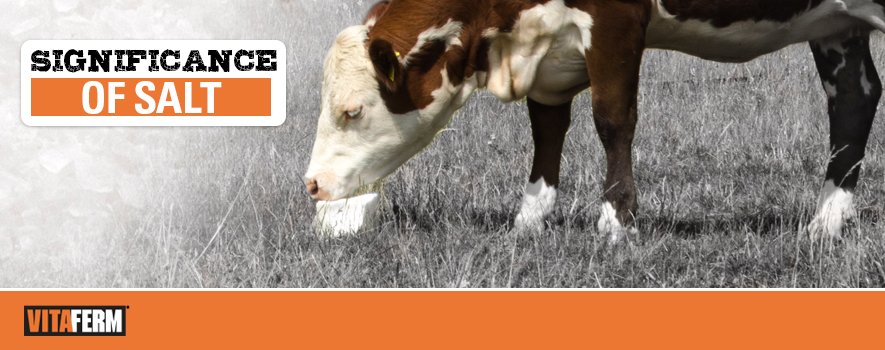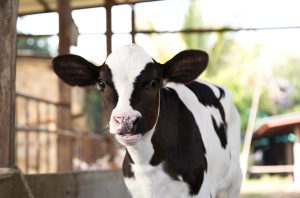
Both sodium and chloride, elements of salt, are essential nutrients for virtually all forms of life. Sodium and chloride are necessary for proper nervous and muscular function, body pH regulation and water retention. Sodium is involved in muscle and nerve function. Chlorine is essential for hydrochloric acid production in the abomasum and for carbon dioxide transport. The maximum level for sodium in the diet is 0.08 percent of the dry matter for dry cows and 0.1 percent for lactating cows. However, the requirement for chlorine is unknown. To date, deficiencies of chlorine have not been demonstrated in beef cattle.
An animal’s requirement for sodium and chlorine is commonly expressed as a salt requirement. Salt is present in the soft tissues of the body, but the body has limited ability to store it, thus the daily requirement for it. Still, the salt requirement for beef cattle is quite low. They will need to consume approximately 0.005 to 0.010% of their body weight in salt each day. Therefore, a mature cow should consume 1-2 ounces daily.
Uniquely, salt may be the only mineral compound animals actually develop a craving for. Cattle will consume more salt when needed when it is supplied free choice, especially in granular form versus block. Furthermore, cattle eat more salt with high-roughage diet than with high-concentrate rations, with silage or pasture than with dry feeds, and with succulent grass than with mature grass. Cattle deficient in salt often eat dirt, manure, and urine in an attempt to satisfy their appetite for salt. This condition, known as pica, can result in reduced feed intake, growth, and milk production. Luckily, voluntary salt intake usually exceeds minimum requirements and deficiencies are rarely seen, but this condition can be easily corrected with salt supplementation.
A form of salt should always be supplemented to a beef cow. Cattle consume salt in the feeds they are supplemented, the forages they consume, and even in the water that they drink. It is an essential part of many molecular bodily processes and has a profound impact on animal performance. For more information on salt supplementation contact your Area Sales Manager or one of our Nutritionists.


